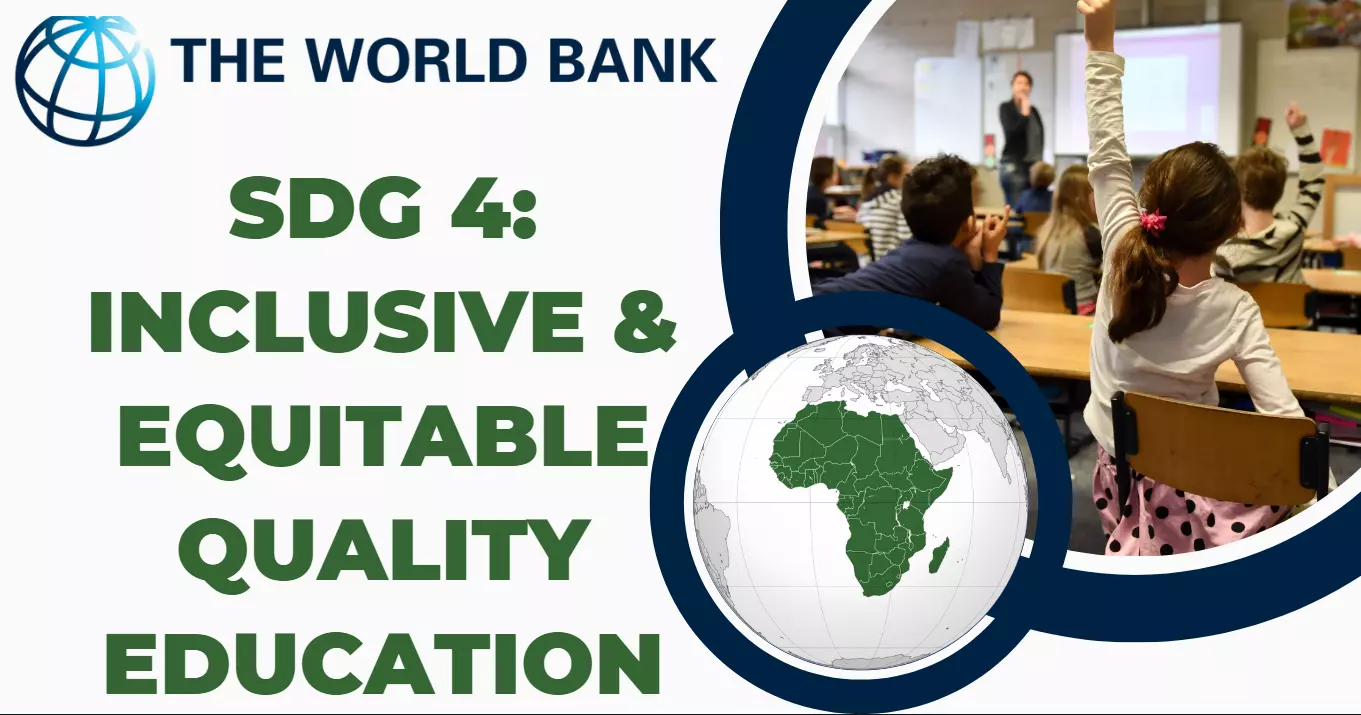The World Bank's Role in Improving Education Outcomes in Developing Economies

In today's interconnected world, access to quality education is a fundamental right that paves the way for individual empowerment and a nation's prosperity. Unfortunately, many developing countries face significant challenges in providing their citizens with effective learning opportunities. Recognizing this pressing issue, the World Bank has taken a steadfast stance in improving educational outcomes worldwide, with a particular emphasis on nations struggling to bridge the education gap.
At the forefront of this global initiative, the World Bank sponsors a range of transformative programs aimed at nurturing better learning outcomes for children in developing countries. These initiatives are not only instrumental in addressing immediate educational concerns but also focus on systemic reform throughout the entire education cycle. Let's delve deeper into the World Bank's commitment to creating resilient, equitable, and inclusive education systems that ensure learning happens for everyone.
Promoting Equitable Education Globally
The World Bank's primary objective is to ensure that educational outcomes are uplifted across the globe, with a special focus on developing nations where educational disparities often persist. By supporting programs that target these disparities, the World Bank strives to provide equal educational opportunities to children who might otherwise be left behind.
Innovative Solutions to Educational Challenges
Education systems worldwide face diverse challenges, from inadequate infrastructure to outdated teaching methods. The World Bank understands the need for innovative solutions to these problems. Hence, it actively facilitates knowledge sharing among countries, enabling them to apply pioneering approaches to their specific education challenges. This collaborative effort fosters a dynamic exchange of ideas and best practices, driving continuous improvement.
Nurturing Future Leaders through Education
One of the World Bank's overarching goals is to ensure that Sustainable Development Goal 4 (SDG 4) is achieved. SDG 4 aims to "ensure inclusive and equitable quality education and promote lifelong learning opportunities for all." By actively participating in the pursuit of SDG 4, the World Bank plays a pivotal role in shaping a more empowered future generation capable of steering the growth and development of nations.
Targeted Educational Programs
The World Bank's support spans a broad spectrum of educational needs, addressing critical areas that have a far-reaching impact. Some of the key programs supported by the World Bank include:
1. Early Childhood Development:
Recognizing the significance of the formative years, the World Bank promotes programs that focus on early childhood development. These initiatives lay the foundation for a child's future learning experiences, ensuring that they start their educational journey with a strong footing.
2. Girls' Education:
Gender equality in education is a paramount concern. The World Bank actively supports programs that encourage and empower girls to pursue education, breaking down barriers that hinder their progress.
3. Higher Education:
The World Bank recognizes the vital role of higher education in shaping a nation's intellectual capital. Hence, it supports initiatives that enhance higher education institutions and improve accessibility for students.
4. New Technologies:
Embracing the digital age, the World Bank invests in educational technology to enhance learning experiences. By leveraging new technologies, it aims to make education more engaging and accessible.
5. Skills Development:
Preparing individuals for the workforce is essential for economic growth. The World Bank sponsors programs that equip individuals with the skills needed to thrive in a competitive job market.
6. Teachers' Continuous Professional Development:
Teachers are the cornerstone of any education system. The World Bank supports programs that empower educators through continuous professional development, ensuring they remain effective in their roles.
In conclusion, the World Bank's unwavering commitment to improving global education is a beacon of hope for millions of children and adults in developing countries. Through its diverse programs and initiatives, the World Bank not only addresses immediate educational challenges but also paves the way for a brighter and more equitable future. As it actively contributes to the achievement of SDG 4, the World Bank stands as a catalyst for progress, nurturing the talents and aspirations of generations to come. Together, we can build a world where quality education is within reach for all.
